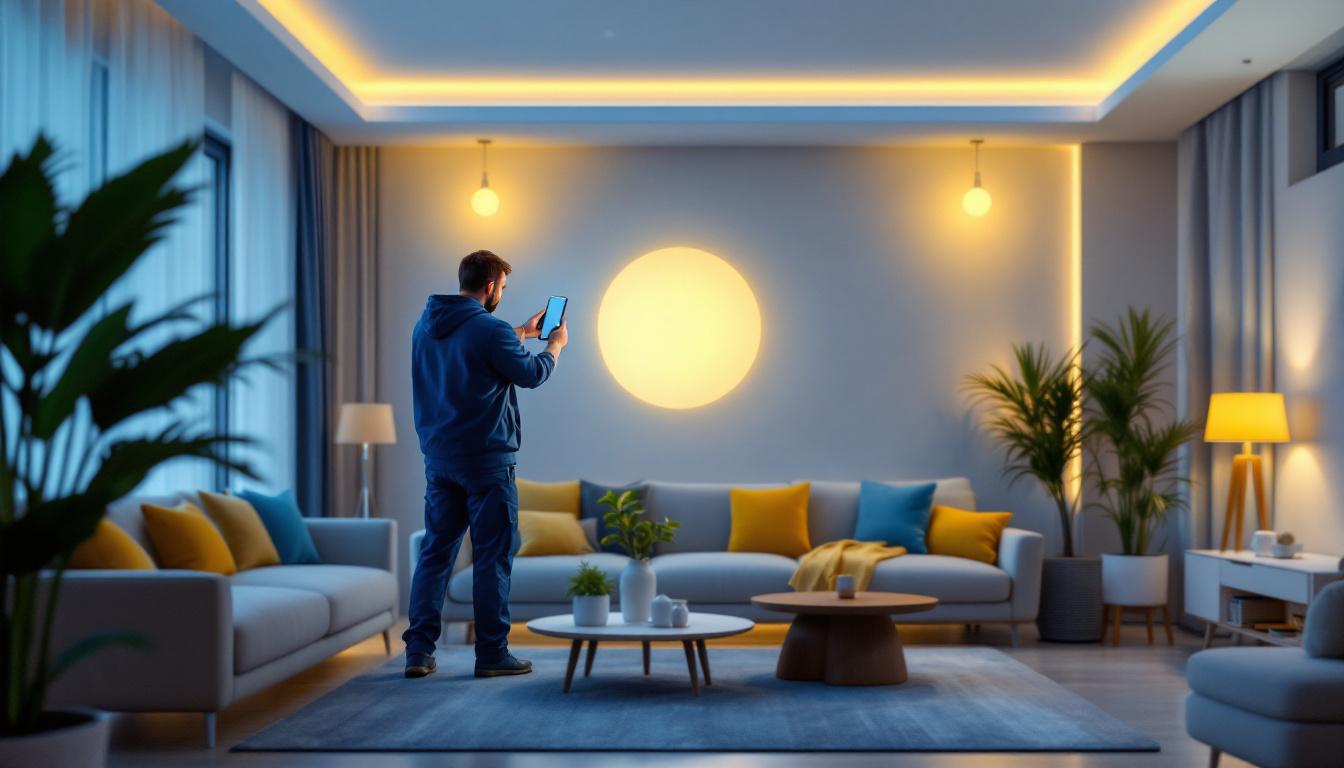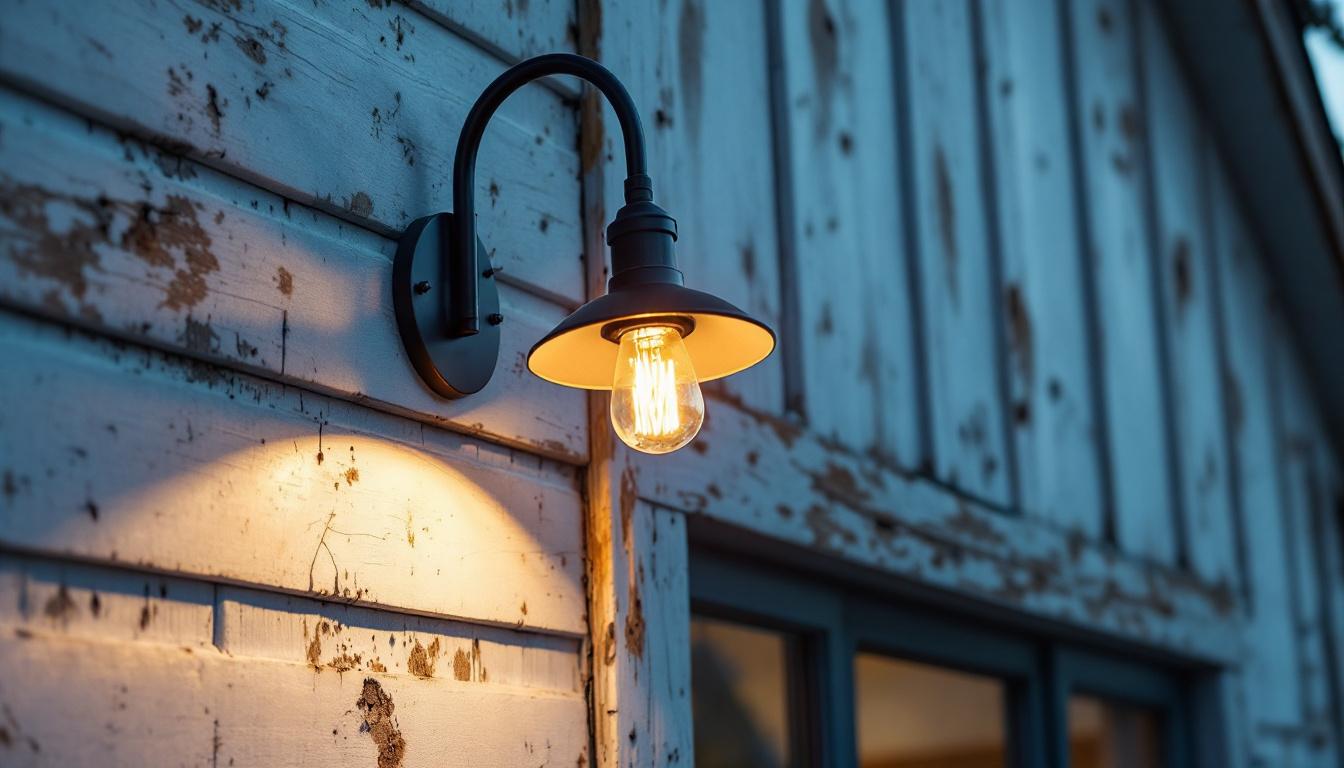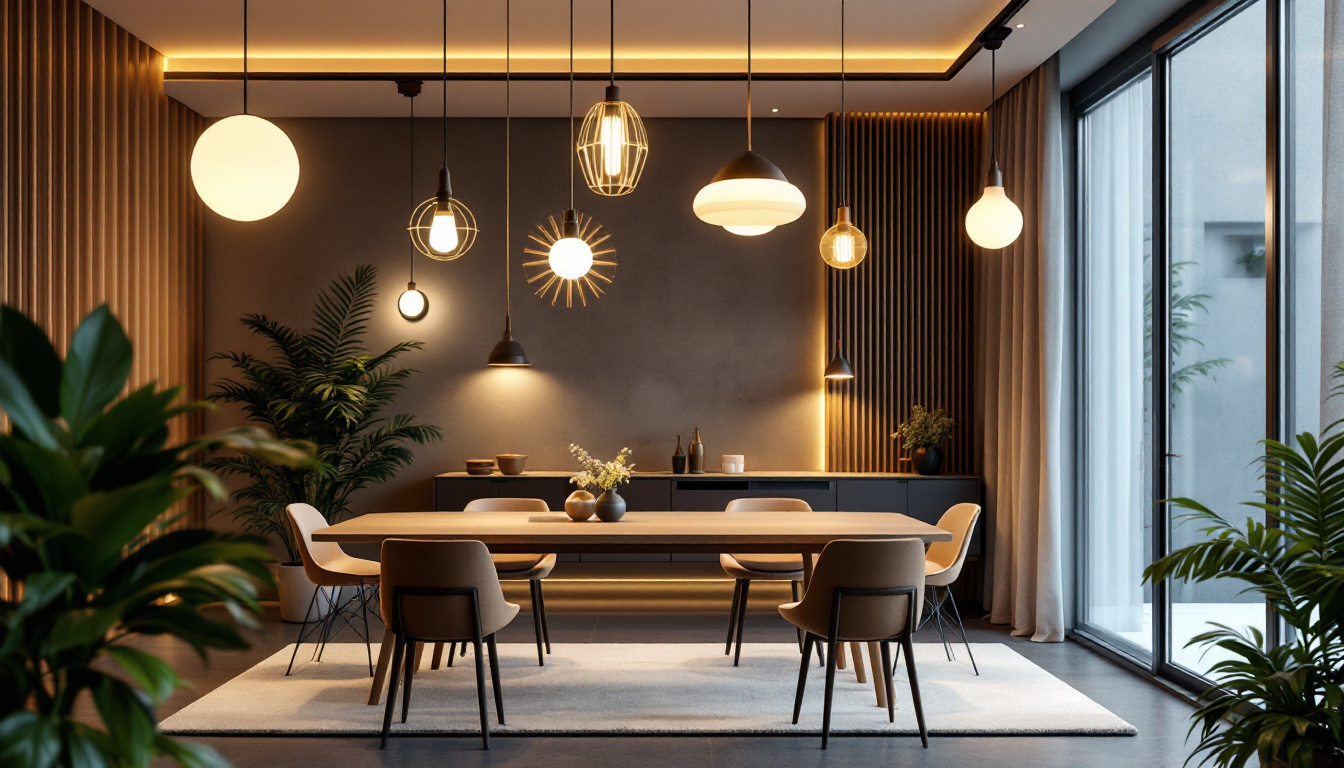
In an era where technology is rapidly evolving, home light automation has emerged as a significant trend in the residential sector. For lighting contractors, this presents a unique opportunity to enhance service offerings and streamline operations. By integrating automated lighting solutions, contractors can not only meet the growing demands of homeowners but also position themselves as leaders in the industry.
Home light automation refers to the use of smart technology to control lighting systems within a residence. This can include features such as remote control, scheduling, and energy-efficient settings that adapt to the homeowner’s lifestyle. The integration of such systems allows for enhanced convenience, security, and energy savings. Homeowners can set their lights to turn on automatically at sunset or off when they leave the house, ensuring that energy is not wasted while also providing a sense of safety when returning home after dark.
As homeowners become increasingly tech-savvy, the demand for smart home solutions, including automated lighting, is on the rise. This shift not only transforms the way lighting is designed and installed but also opens new avenues for contractors to expand their businesses. With the ability to customize lighting scenes for different activities—such as movie nights, dinner parties, or even quiet reading time—home light automation is rapidly becoming a staple in modern home design.
Automated lighting systems typically consist of several key components: smart bulbs, sensors, control hubs, and mobile applications. Smart bulbs can be controlled remotely and programmed for different settings, while sensors can detect motion or ambient light, adjusting the lighting accordingly. Control hubs serve as the central point for managing these devices, often integrating with other smart home technologies. These hubs can connect with security systems, allowing for synchronized lighting responses during alarms or alerts, which can significantly enhance home security.
Mobile applications allow homeowners to control their lighting from anywhere, providing a level of convenience that traditional systems cannot match. This interconnectedness not only enhances user experience but also allows for innovative design possibilities in residential lighting projects. For instance, homeowners can create personalized lighting schedules that align with their daily routines, or utilize voice commands through smart assistants to adjust lighting without lifting a finger. Furthermore, the ability to monitor energy usage through these applications empowers homeowners to make informed decisions about their energy consumption, ultimately leading to more sustainable living practices.
One of the primary benefits of offering home light automation solutions is the potential for increased customer satisfaction. Homeowners today are looking for solutions that not only meet their aesthetic needs but also provide functionality and ease of use. By incorporating automated lighting systems, contractors can deliver a product that aligns with these expectations. The integration of smart technology into everyday living spaces allows homeowners to control their lighting through mobile apps or voice commands, making it a seamless part of their daily routine.
Moreover, automated lighting can significantly enhance the overall ambiance of a home. Homeowners can easily adjust lighting levels to suit their mood or activity, whether it’s hosting a dinner party or enjoying a quiet evening. This flexibility contributes to a more personalized living experience, which is a key selling point for contractors. Additionally, features such as programmable schedules and scene settings allow for a tailored environment that can adapt throughout the day, creating a dynamic atmosphere that evolves with the homeowner’s lifestyle.
By providing innovative lighting solutions, contractors can foster long-term relationships with their clients. When homeowners see the value in automated lighting, they are more likely to return for additional services or recommend the contractor to friends and family. This not only boosts customer loyalty but also enhances the contractor’s reputation in the market. Establishing a strong rapport with clients can lead to referrals and repeat business, as satisfied customers are often eager to share their positive experiences with others.
Furthermore, offering maintenance and support for automated systems can create ongoing revenue streams. As technology evolves, homeowners may require upgrades or troubleshooting, presenting contractors with opportunities to engage with clients long after the initial installation. Providing educational resources about the latest advancements in lighting technology can also empower homeowners, allowing them to make informed decisions about their systems. This proactive approach not only reinforces the contractor’s expertise but also positions them as a trusted partner in the homeowner’s journey toward a smarter, more efficient living space.
In addition to enhancing customer satisfaction, home light automation can also streamline operations for lighting contractors. Automated systems can simplify the installation process, allowing for quicker project completion and reduced labor costs. This efficiency can lead to increased profitability and the ability to take on more projects simultaneously.
Moreover, the integration of smart technology can improve project management. With the use of mobile applications and cloud-based systems, contractors can easily monitor installations, track progress, and communicate with clients in real time. This level of organization not only enhances workflow but also minimizes the chances of errors or miscommunication.
Automated lighting systems are designed with energy efficiency in mind. By utilizing sensors and smart controls, these systems can significantly reduce energy consumption. For contractors, this presents an opportunity to market the sustainability aspect of their services. Homeowners are increasingly concerned about their environmental impact, and offering energy-efficient solutions can be a compelling selling point.
Furthermore, many automated lighting systems come with features that allow homeowners to monitor their energy usage. This transparency not only encourages responsible consumption but also positions contractors as knowledgeable partners in energy management.
The lighting industry is becoming increasingly competitive, with many contractors vying for the same clientele. By embracing home light automation, contractors can differentiate themselves from competitors. Offering cutting-edge technology not only attracts tech-savvy homeowners but also establishes the contractor as an industry leader.
Incorporating automated solutions into service offerings can also open up new markets. For instance, contractors can target luxury homes or new construction projects where homeowners are more likely to invest in smart technology. This diversification can lead to increased revenue and a broader client base.
To successfully implement home light automation, contractors must invest in training and skill development. Understanding the intricacies of smart technology is essential for effective installation and troubleshooting. By staying informed about the latest advancements in automated lighting, contractors can ensure they provide top-notch service to their clients.
Additionally, offering workshops or training sessions can enhance the skills of the entire team, leading to improved efficiency and customer satisfaction. A knowledgeable workforce is a valuable asset that can set a contractor apart in a crowded market.
Effectively marketing home light automation services is crucial for attracting new clients. Contractors should leverage digital marketing strategies, such as social media and search engine optimization, to reach potential customers. Showcasing completed projects and client testimonials can also help build credibility and trust.
Additionally, creating informative content about the benefits of automated lighting can position contractors as experts in the field. Blog posts, videos, and webinars can educate homeowners about the advantages of smart lighting, driving interest and inquiries.
Establishing partnerships with technology providers and other contractors can further enhance marketing efforts. Collaborating with smart home technology companies can provide access to the latest products and innovations, allowing contractors to offer comprehensive solutions. Networking within the industry can also lead to referrals and joint ventures, expanding the contractor’s reach.
Participating in trade shows and industry events can provide valuable exposure and networking opportunities. These platforms allow contractors to showcase their services and connect with potential clients, further solidifying their presence in the market.
While the benefits of home light automation are numerous, contractors must also be aware of potential challenges. The rapid pace of technological advancement means that systems can quickly become outdated. Staying current with the latest trends and products is essential to remain competitive.
Additionally, the initial investment in smart technology can be a barrier for some homeowners. Contractors should be prepared to educate clients about the long-term savings and benefits associated with automated lighting to justify the upfront costs. Offering financing options or packages can also make these solutions more accessible.
As with any technology, the quality and reliability of automated lighting systems are paramount. Contractors must choose reputable brands and products to ensure customer satisfaction. Providing warranties and guarantees can further instill confidence in clients, assuring them of the durability and performance of the systems.
Moreover, ongoing support and maintenance are crucial for the longevity of automated systems. Contractors should establish clear communication channels for clients to report issues or seek assistance, fostering a sense of trust and reliability.
Home light automation presents a wealth of opportunities for lighting contractors. By embracing this trend, contractors can enhance customer satisfaction, streamline operations, and stay competitive in a rapidly evolving market. The integration of smart technology not only meets the demands of modern homeowners but also positions contractors as leaders in the industry.
As the landscape of residential lighting continues to change, those who adapt and innovate will thrive. By investing in training, marketing, and quality products, lighting contractors can successfully navigate the challenges and reap the rewards of home light automation.
Ready to elevate your lighting projects with the latest in home light automation? At LumenWholesale, we provide lighting contractors like you with the highest quality, spec-grade lighting products at unbeatable wholesale prices. Say goodbye to middleman markups and hello to a vast selection of reliable, high-performance lighting options that meet the most rigorous industry standards. Plus, with the convenience of free shipping on bulk orders, you can ensure your projects shine without any hidden fees. Don’t compromise on quality or value—discover the best wholesale lighting deals at LumenWholesale and bring the benefits of smart lighting to your clients today.

Discover the future of lighting as we explore the shift from fluorescent to LED lights.

Discover the science behind light sconces and elevate your lighting projects.

Discover why staying informed about exterior gooseneck barn lights is crucial for lighting contractors.

Discover how to future-proof your lighting projects with the latest in light connector technology.